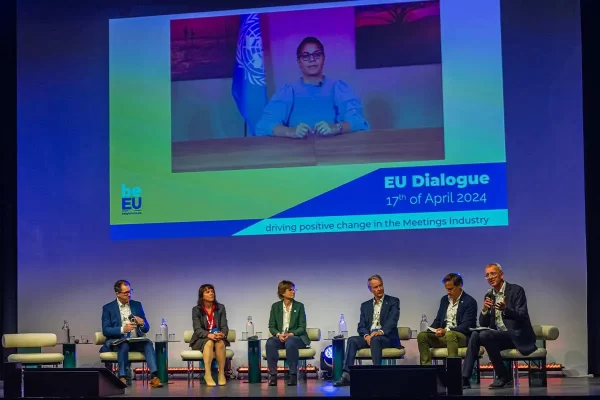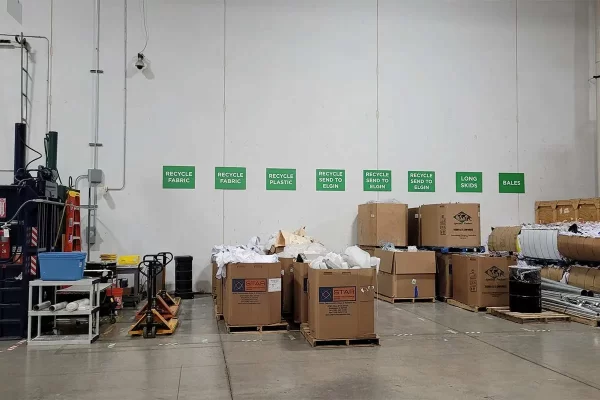
By Rod Cameron, Executive Director, JMIC
Reading the news from various cities impacted by terrorist actions around the world these days is almost enough to make you want to go back to bed and pull the covers over your head. But for most of us—particularly in the meetings industry—that simply isn’t an option. Life goes on, and that life necessarily involves travel to places that include those unfortunate enough to have been targeted.
But the fact is that there are huge implications to all this that extend far beyond our own immediate reactions. What is at stake is no less than the future of our industry—not just because of the fear factor and the event cancellations and relocations that may result but also because of the likelihood they will provoke greater security measures and potentially even a weakening of cross-border agreements that have facilitated travel in recent years. Together, these could conspire to reduce travel inclinations at a time when industry recovery was only just beginning to gain traction in many parts of the world.
So this is clearly not a situation where we have the luxury of passively sitting back and watching events unfold. These incidents appear to have become part of a new reality, and the key question is: What can and should we do in response? I’d suggest there are three things we need to consider;
The first is perspective—maybe the toughest of all in the face of recent coverage—and here there are several aspects. First, the approaches now being taken by terrorists mean that no major destination is truly immune—we can’t operate on the assumption that there are “safe” and “unsafe” options when recent events have made it clear that such incidents can and have taken place anywhere in the world, and even in the air between. At the same time, media hype notwithstanding, most incidents have been relatively contained—frightening in their viciousness and seeming randomness but in reality affecting only a tiny proportion of the population, even in the most dramatically affected areas. It remains the case that visitors are far more likely to be impacted by any number of other events than the actions of terrorists.
The second factor is vigilance—and again, there are again several dimensions to consider. Most importantly, we need to accept that we all have a responsibility to our members, clients and delegates to take and support every reasonable measure to manage and minimize the direct threat in any way we can. This is particularly true for suppliers whose decisions and actions shape the conditions that would form the backdrop for any incident that might occur.
Organizers, facilities and suppliers all have a major obligation not just to secure their own operations but to coordinate with other agencies that would potentially be involved should an incident occur. In fact, a better coordination of efforts seems to be one of the top recommendations arising from those incidents that have already taken place.
However, this responsibility also extends to counseling against the kind of overreaction that would place draconian measures on travel overall, as this only serves to create a downward spiral that would in the end cause even more damage the incidents themselves.
And that brings us to the third most necessary and at the same time challenging action—a measure of defiance in the face of what is clearly an effort to disrupt not only the benefits but even the values that bring people together in joint efforts to improve the quality of our global understanding, cooperation and interactions on so many fronts. To the extent that we react out of fear and resort to isolation (or, at a minimum, the isolation of selected destinations), we become accomplices, delivering exactly what those responsible for the atrocities are looking to achieve.
Our industry has a proud history in this regard. In previous global disruptions, including both terrorism and any number of recent economic or financial crises, it was typically the case that the business travel sector—including meetings, convention and exhibition attendance—was a leader in recovery. So far, it appears that this remains the situation today; in most terrorist-impacted cities, early reports are that tourism has been hit much faster and harder than scheduled business events. The clear message is that we have a key role to play in defying the disruptive purposes of terrorist acts by refusing to respond they would like us to. And that means showing leadership in maintaining our event schedules and our rotations in ways that demonstrate our collectivcommitment to global engagement and participation.
None of this will be easy—fear is a powerful motivator, as those responsible for these incidents know only too well—but then, it’s not as though there are any easier choices available. What we risk is becoming part of a reaction that produces the kind of success the terrorists are looking to achieve—and for the sake of our industry’s future, we must lead the resistance.
The active member associations who comprise JMIC today are:
AACVB, the Asian Association of Convention and Visitor Bureaus AIPC, the International Association of Convention Centres ASAE, the American Society of Association Executives Cocal, the Latin American Confederation of PCO and Related Companies
DMAI, Destination Marketing Association International ECM, European Cities Marketing EFAPCO, the European Federation of Associations of Professional Congress Organisers EVVC, European Association of Event Centres IAPCO, the International Association of Professional Congress Organizers
ICCA, the International Congress and Convention Association
ICESAP, the Incentive, Conference & Event Society Asia Pacific IFES, the International Federation of Exhibition and Event Services MPI, Meeting Professionals International PCMA, the Professional Convention Management Association SITE, the Society of Incentive & Travel Exellence UFI, the Global Association of the Exhibition Industry
UIA, Union of International Associations
JMIC is supported by IMEX and ibtm world





























